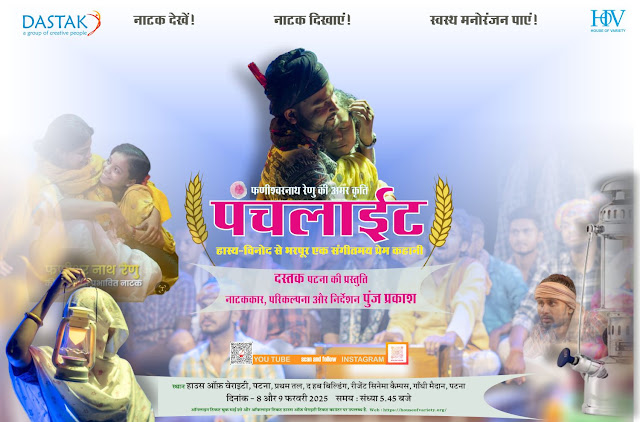A game of no winner
( हिंदी में समीक्षा के लिए - यहाँ क्लिक करके क्रम सं. 60 देखिए )
Notwithstanding the deep love-bond enjoyed so far, the uneasiness takes no time in sneaking into the mind once betrayal of love is exposed. As the ladylove is no more there is no point in involving oneself in a wrangle. But the bitterness is conspicuous which deepens on each revelations of disloyalty.
One is the husband and another is the lover of the lady who died just a few days ago. The knot is both were running concurrent relation with the same lady. Of course, the husband was ignorant about the other man and the other man was aware of the husband. The husband thinks that the lover man has enjoyed the love and he himself was betrayed but surprisingly the same is the case with the lover. He thinks that the husband was the person to whom his lady loved truly because she could never detach her mind from him.
The play addresses a very tricky question as who won in this love-triangle. The pangs of betrayal is suffered not only by the husband but also by the lover who thinks his beloved never gave her hundred percent to him and always kept some space of her heart reserved for her husband. A philosophical question arises in the mind of the husband what was wrong if he would have lived with the feeling of purity of his love. The feeling was spoilt only because of the revelations of betrayal when he got a missive of her wife written to her lover after her death. Had the love showered by his wife in his marital life has undergone any change after the revelations? No, still the whole experience is spoilt for ever. But what can be done to the earlier happy experiences with the wife? Can the history of true love experience be changed with retrospective effect? Never.
In essence, what we are experiencing today may be proved wrong tomorrow. But that will be a matter of tomorrow We cannot and perhaps should not spoil our pleasant experience of today in bad anticipation of tomorrow.
The playwright Surendra Verma touches the sentimental chord of the viewers and takes the audience to the terrains of a metaphysical world. The process of this journey has no jitters and is perfectly seamless. The director Raas Raaz is the thespian exponent of knotty love stories. And a play like 'Maranoparant' sets him in his true grooves. He himself is one of the best-suited actors for a role which requires a lot of facial expression and a youthful masculine physique. He succeeded not only putting the dilemma of the male character fully on the stage through his acting skills. His directorial prowess was evident in adding the female character in the play which is nowhere in the original script. This female character (played by Puja) is of the ladylove who has no dialogue but has enough to do with her grace, smile, laughter, coquets and emotionally charged facial expression. She spoke a lot through her eyes and face without speaking a word. Vishnu Dev played the betrayed husband. The embarrassment of the husband was visible though his dialogue delivery and he too maintained the required tempo and impulse of the character.
The show left a long-standing impact on the viewers who found themselves deeply engrossed in the intriguing story of the play after the end of it.
Review by - Hemant Das 'HIm'
Send your feedback to - hemantdas2001@gmail.com

















